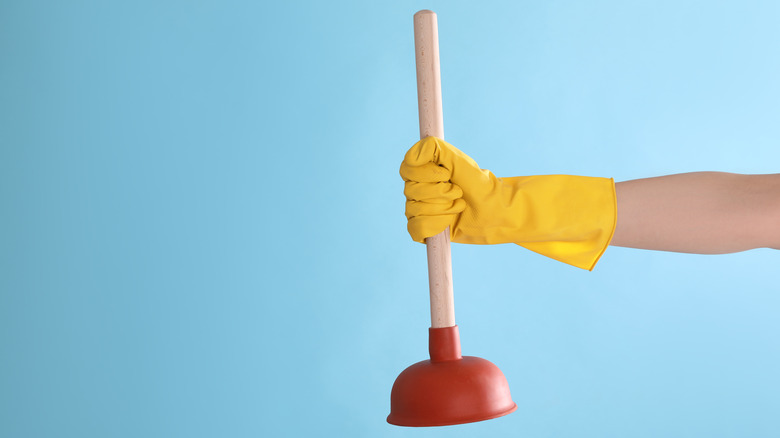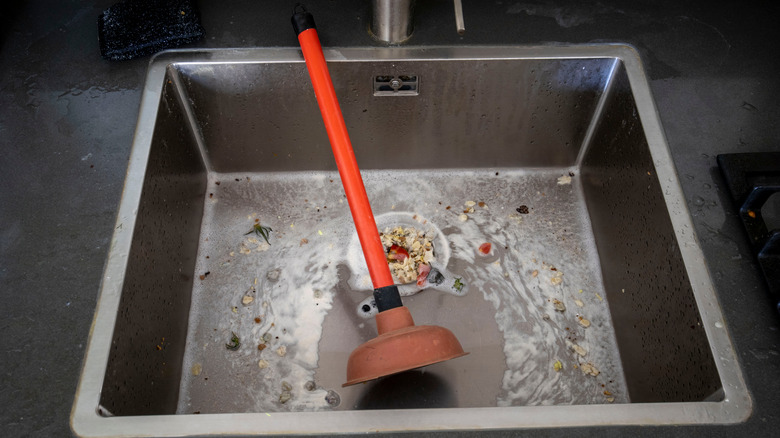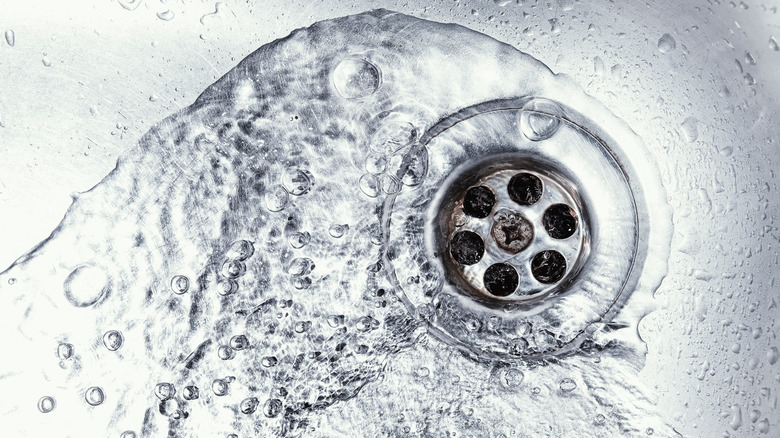The Most Important Place To Use A Plunger That You're Probably Missing
Although it's not the cleanest and most hygienic item in your home, the plunger is a necessity for every bathroom. Think of all the clogged toilets that would exist if the plunger was never invented (on second thought, maybe don't). Clogged toilet drains are a common problem in households across the country, says Mr. Rooter Plumbing. Typically, excess toilet paper, human waste, and flushing foreign items are the cause of backed-up toilets. Luckily, your plunger is there to solve the problem without professional help.
If you take a look around your home, you may notice problems that you didn't know could be solved with a plunger. Fortunately, we are here to bring one of the biggest household troubles to your attention and discuss how you can solve it using your everyday plunger. Now, let's take a look at the most important place to use a plunger that you're probably missing.
Unclog your sink
Save yourself some money and a trip to the store, and use your plunger to unclog your kitchen and bathroom sinks. This is a cheap and simple way to get rid of all that gunk in your drain and your pipes properly running again. If it works for your toilet, why not the other drains in your home? To unclog your sinks with a plunger, make sure the plunger cup envelops the entirety of the drain hole, Ivey Engineering says. If you have a double-basin sink, cork the non-clogged hole with a rag or cloth.
Once you've completed both steps, strenuously plunge the clogged hole several times. It's important that you keep the plunger upright — don't go at it from an angle or it will create gaps between the plunger and the hole. Continue plunging until the standing water starts receding. You'll also notice food and other solids emerging from the drain.
How you can prevent clogged drains
The most common reason your bathroom sink is clogged is hair buildup in its pipes, The Home Depot explains. As far as your kitchen sink problem, Direct Energy says cooking grease and oil are to blame. To prevent your drains from getting backed up, pay attention to what you're washing down the drain. To properly dispose of cooking grease and oil, Clayton County Water Authority recommends letting the oil cool and then transferring it to a metal can (such as an empty canned goods container) or ceramic mug. Dump the hardened fat into your trash can, and you're good to go.
To avoid clogging your bathroom sink, refrain from washing your hair down the drain. When you're finished brushing or styling your hair, take the loose hair strands and put them in the trash. There are also drain tools that can catch hair before it becomes a problem in your pipes. This will save you the hassle of unclogging your sink; however, if you're in a time of need, your trusty plunger is there to help.


